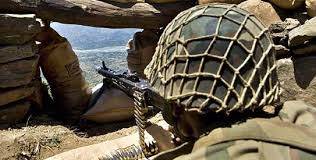Terrorism in Pakistan will not be eradicated if actions remain limited to FATA. There are several militant groups, based across the country, from urban centers to rural areas, and reports suggest that they often collaborate with each other to bring death and destruction. This cooperation takes many forms: logistical support, manpower and ideological backing. Therefore, any effective counter-terrorism policy must take a holistic view of the situation and attempt to deal with all levels, all shades of the problem including sectarianism. Recent statements by Prime Minister Nawaz Sharif give the impression that he understands the need to adapt a comprehensive policy to counter militancy, which doesn’t discriminate between good and bad Taliban. In a rare display, the PM has also expressed resolve to deal with sectarianism, as he promised to bring justice to the victims of the Hazara community, which has been brutally targeted by the proscribed Lashkar-e-Jhangvi (LeJ).
The PM’s statements are encouraging. It is most important that the elected head of the government not only takes a strong and clear stance on the issue, but is also seen as leading the charge to secure the lives of citizens. While the PM is saying the right things, the people are still not entirely convinced, and for good reason. The PML-N government has been in power for more than a year now. It wasted crucial time and further polluted the narrative against terrorism by engaging in a futile and ultimately damaging exercise of holding dialogue with murderers. If the people’s anger was not solely focused on those who murdered children and staff members in Army Public School, if they were not so desperate for revenge and justice, the PML-N government may have found itself in a lot of trouble for doing nothing to prevent the tragedy from occurring. As the immediate shock wears off, as grief and anger gives way to clear thought, the government might be and should be held accountable for its inexcusable and disastrous negligence on the counter-terrorism front. What the committee is trying to do now should have been done long ago. Does it mean that the government as well as other political parties have finally woken up and are now intent on taking necessary decisions?
The fact is that taking an anti-terrorism stance is popular in the country right now. It is also in line with the military’s demand. Politicians can either ride the wave or be swept by it. As time passes, realities will expose themselves. Anti-sectarianism rhetoric will be put to test in the streets of Punjab and elsewhere. Will the Punjab government act against seminaries and militant groups operating in the province? Will the PML-N sever ties with entities such as the sectarian ASWJ? Will the government offer protection to activists, prosecutors and judges instead of deploying security for notorious extremists? Will it ask Saudi Arabia, UAE and other brotherly states to cut funding for sectarian groups?
Friday, April 19, 2024
Rhetoric And Reality

Opposition objects to oath-taking of MNAs amid lawlessness
5:15 PM | April 19, 2024
Electioneering to end on Friday night ahead of by-polls in 21 constituencies
5:14 PM | April 19, 2024
Fawad Chaudhry granted bail in 14 cases related to May 9 violence
5:13 PM | April 19, 2024
British Army chief lauds Pakistan Army's professionalism, expertise
5:12 PM | April 19, 2024
Israeli aircraft fire missiles at Air Force assets in Iran: Report
3:52 PM | April 19, 2024
A Tense Neighbourhood
April 19, 2024
Dubai Underwater
April 19, 2024
X Debate Continues
April 19, 2024
Hepatitis Challenge
April 18, 2024
IMF Predictions
April 18, 2024
Kite tragedy
April 19, 2024
Discipline dilemma
April 19, 2024
Urgent plea
April 19, 2024
Justice denied
April 18, 2024
AI dilemmas unveiled
April 18, 2024
ePaper - Nawaiwaqt
Advertisement
Nawaiwaqt Group | Copyright © 2024





